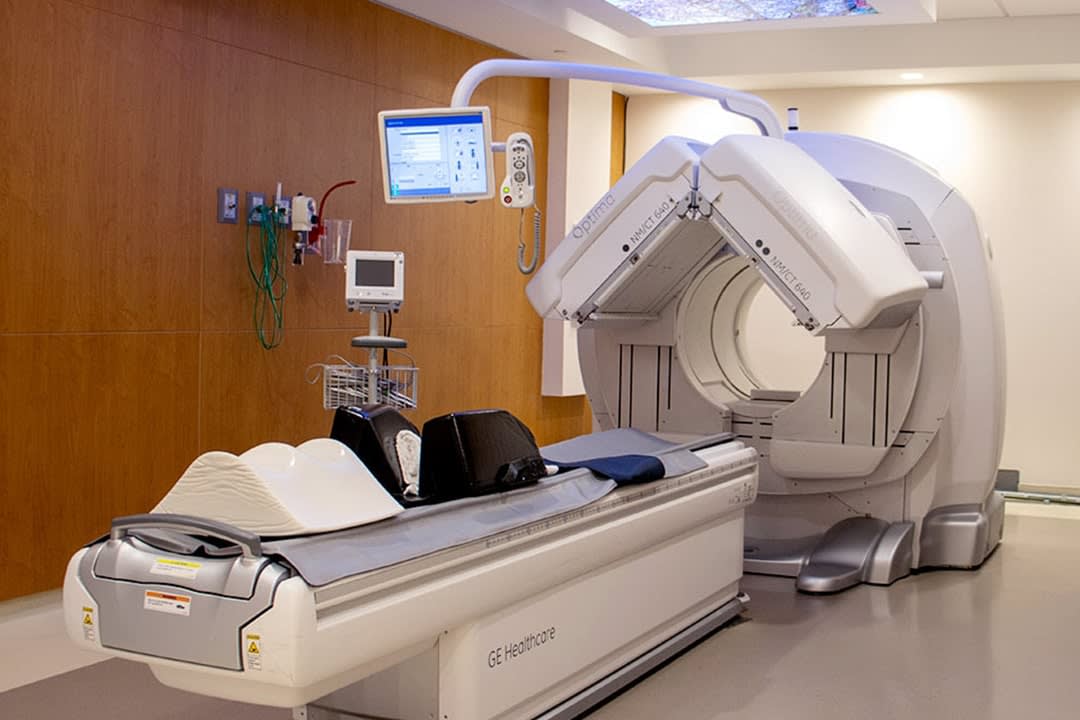Our Approach
Stamford Health offers comprehensive, compassionate, and advanced treatment for hepatobiliary cancers including liver, pancreatic, gallbladder, and bile duct cancer. While these less common cancers may be more challenging to diagnose and treat, we have the expertise to provide world-class care.
Meet Our Providers
-
Surgery
-
MEDICAL ONCOLOGY
-
RADIATION ONCOLOGY
-
RADIOLOGY
-
PATHOLOGY
A Closer Look At Our Cancer Care
Liver, Pancreatic, Gallbladder & Bile Duct Cancer Treatment Options
Once we confirm your diagnosis, treatment depends on the type and stage of your liver, pancreatic, or bile duct cancer. Your oncologist will work with you and your family to personalize a plan that’s best for you.Symptoms Of Liver, Pancreas & Bile Duct Cancer
While it’s common to not have any specific symptoms, you may experience any of the following:
- Weight loss
- Abdominal or back pain
- Jaundice
- Nausea
- Vomiting
- Pancreatitis
- Decreased energy
Dana-Farber Brigham Cancer Center Collaborative
Stamford Health’s comprehensive, ongoing collaboration with Dana-Farber Brigham Cancer Center ensures that our patients receive world-class, clinical expertise close to home. Stamford Health physicians work together with Dana-Farber Brigham physicians to offer timely second opinions and allow access to the latest research, treatment options, and clinical trials. For more information on how this unique relationship helps our patients, watch the video.
Hepatobiliary Cancer FAQs
-
Who should consider screening for liver, pancreatic, gallbladder, or bile duct cancer at Stamford Health?Screening is recommended for individuals with specific risk factors, including a family history of these cancers, certain genetic conditions, and chronic liver diseases. Age-appropriate recommendations may vary, and it's crucial to consult with your health care provider to determine the most suitable screening plan for you.
-
How frequently should individuals undergo screenings for liver, pancreatic, gallbladder, or bile duct cancer, and is there a difference based on risk factors?The frequency of screenings depends on individual risk factors and medical history. Generally, individuals with higher risk may need more frequent screenings. Your health care provider will tailor the screening schedule based on your specific risk profile, emphasizing the importance of regular monitoring for early detection and intervention.
-
How can individuals reduce their risk of developing liver, pancreatic, gallbladder, or bile duct cancer, and are there lifestyle modifications that can help?Reducing the risk of these cancers involves adopting a healthy lifestyle. This includes maintaining a balanced diet rich in fruits and vegetables, managing a healthy body weight, avoiding tobacco, limiting alcohol consumption, and staying physically active. These lifestyle modifications can contribute to overall well-being and may help lower the risk of cancer.
-
Can genetic counseling or testing be beneficial in assessing the risk of these types of cancer, and how can individuals access these services at Stamford Health?Yes, genetic counseling and testing can provide valuable insights into hereditary factors that may influence the risk of liver, pancreatic, gallbladder, or bile duct cancer. Stamford Health offers genetic counseling services to help individuals understand their risk and make informed decisions about their health. To access these services, speak with your health care provider who can provide guidance and facilitate the necessary referrals.





















